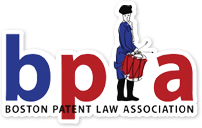
Limitations on Enforceability of Patent Rights



You have written your patent application to your new invention, prosecuted it before the Patent Office, and finally obtained a patent on the invention. You now have the legal right to exclude others from practicing your invention, right? In some instances, maybe not.
In the United States, prior to the 2006 Supreme Court case of
eBay Inc. v. MercExchange
, it was generally accepted that one had a legal right to stop others from infringing one’s valid patent, and absent exceptional circumstances, courts would issue permanent injunctions against those found to be infringing another’s patent. The holding in eBay
changed this when the Supreme Court held that injunctions were not automatically available as relief to a patentee plaintiff, but that, depending on a number of factors, an infringer might instead have to pay royalties or other monetary compensation to the patentee plaintiff.
In some instances, a patentee may not have a legal right to obtain an injunction against one infringing his patent, even if the eBay factors are satisfied. Further, in some instances, a patentee may not even be legally eligible to receive monetary or other compensation from an infringer. These instances vary from jurisdiction to jurisdiction. This article provides a few examples of the most common situations in which injunctive and/or monetary relief may not be available to a patentee whose patent is being infringed.
Compulsory Licensing
Many countries include provisions in their laws for courts to grant compulsory licenses to patented inventions. Under these provisions, a patentee is forced to grant a license to his patent and cannot enjoin the licensee from practicing the patented invention. There are various rationales for compulsory licensing provisions. One example is if there is a lack or insufficiency of working of the patent by the patentee. If the demand for a patented product is not being met to an adequate extent and on reasonable terms by a patentee, courts may force a patentee to grant licenses to others who can supply the product. Compulsory licenses granted based on this rationale are often related to the production and supply of valuable pharmaceuticals. Other rationales for the grant of compulsory licenses include the refusal of a patentee to grant a voluntary license when requested to do so on reasonable commercial terms, engagement in anti-competitive practices (exorbitant pricing, preferential treatment to certain customers, etc.) by the patentee, and emergency situations, for example, when urgent public health needs arise.
In some countries, including the United States, agents of the government may practice a patented invention without risk of facing an injunction, although a patentee may sue the government for payment of reasonable compensation. In the United States, governmental use of a patented invention is viewed as an eminent domain taking of a license under the patent and not as patent infringement.
Some notable jurisdictions providing for the grant of compulsory licenses to patents include Australia, Canada, China, France, Germany, India, Japan, Korea, Russia, and the United Kingdom.
Experimental/Educational Use
Aside from compulsory licensing, the most common exception to/defense against patent infringement abroad is the experimental/educational use exception. This exception provides for use of a patented invention for scientific or academic research, development, or teaching. The specific limits of this exception vary by jurisdiction. Some notable jurisdictions having an experimental/educational use exception to patent infringement include Canada, China, France, Germany, Japan, Russia, and the United Kingdom.
The United States has a very limited experimental/educational use exception to patent infringement which encompasses acts “for amusement, to satisfy idle curiosity, or for strictly philosophical inquiry” and does not extend to experiments with “definite, cognizable and not insubstantial commercial” purpose. The United States does provide by statute (35 USC §271(e)(1)) for use of patented inventions during the life of a patent for testing intended to develop generic drugs for FDA approval so that generics can enter the market upon the expiration of patented drugs on which they are based. Many times, this is referred to as the regulatory “safe-harbor” or “Bolar” exception to patent infringement. It is intended to prevent patentees from effectively gaining an effective extension of their patent beyond its expiration date, which would otherwise result from FDA filing requirements imposed upon generic manufacturers. Many other jurisdictions have similar provisions to shield generic drug manufacturers from suit for patent infringement while performing testing to obtain data to be submitted to their respective regulatory agencies.
Prior Use
Another internationally popular exception to/defense against patent infringement is the prior use exception. This exception provides for continued use by a person using the claimed invention or making preparations for such use in good faith before the filing or priority date of a patent. This exception is grounded in considerations of equity. If a person has in good faith spent money and effort preparing to produce a product or to develop a business it would be unfair for a later-filed patent application to grant and strip the person of the benefits of his good faith efforts. Jurisdictions having a prior use exception to patent infringement include Australia, Canada, China, France, Germany, Japan, Korea, Russia, the United Kingdom, and the United States.
Vehicles Temporarily or Accidentally Entering National Territory
Acts or repairs on or concerning foreign means of transport, which temporarily or accidentally enter a jurisdiction in which such acts or repairs are subject to patent protection, are considered to be exceptions to patent infringement in many jurisdictions. Recognition of this exception is required by international treaties, including the Paris Convention. With regard to ships, the Paris Convention holds that the use of devices in the body of the vessel is not considered to be infringing, provided that such devices are used exclusively for the needs of the vessel. With regard to vehicles and aircraft, the Paris Convention holds that the use of patented devices in the construction or operation of aircraft or land vehicles or of accessories to such vehicles is not infringement of a patent in the jurisdiction in which the vehicle or aircraft is temporarily or accidentally present. Jurisdictions recognizing this exception include Australia, Canada, China, Germany, Japan, Korea, Russia, the United Kingdom, and the United States.
Methods of Medical Treatment
In many countries, one cannot obtain a patent on a method of medical treatment as it is considered patent ineligible subject matter. The United States is unusual in that it allows inventors to patent methods of medical treatment. A patentee in the United States cannot obtain relief from a medical practitioner infringing a patent directed to a method of medical treatment. By statute (35 USC §287(c)), a medical practitioner who infringes a patent directed to a method of medical treatment is immune from liability to the patentee if he performs the patented method during the performance of a medical or surgical procedure “on a human body, organ or cadaver, or a nonhuman animal used in medical research or instruction directly relating to the treatment of humans.”
These are only examples. Many other exceptions and limitations on the ability of a patentee to recover for patent infringement exist in many jurisdictions. These other exceptions include, for example, exceptions based on patent exhaustion, acts for non-commercial purposes, and preparation of prescribed drugs.
Conclusion
You should be aware of the potential limitations on enforceability of patent rights in the jurisdiction(s) in which you hold patents. If a patentee may be subject to, for example, compulsory licensing, it may be in the best interest of a patentee to engage in early and fair negotiations with potential licensees so that licenses to the patented technology are made on the terms of the patentee rather than on terms dictated by a court.
By
Greg Gerstenzang
, Lando & Anastasi, LLP







